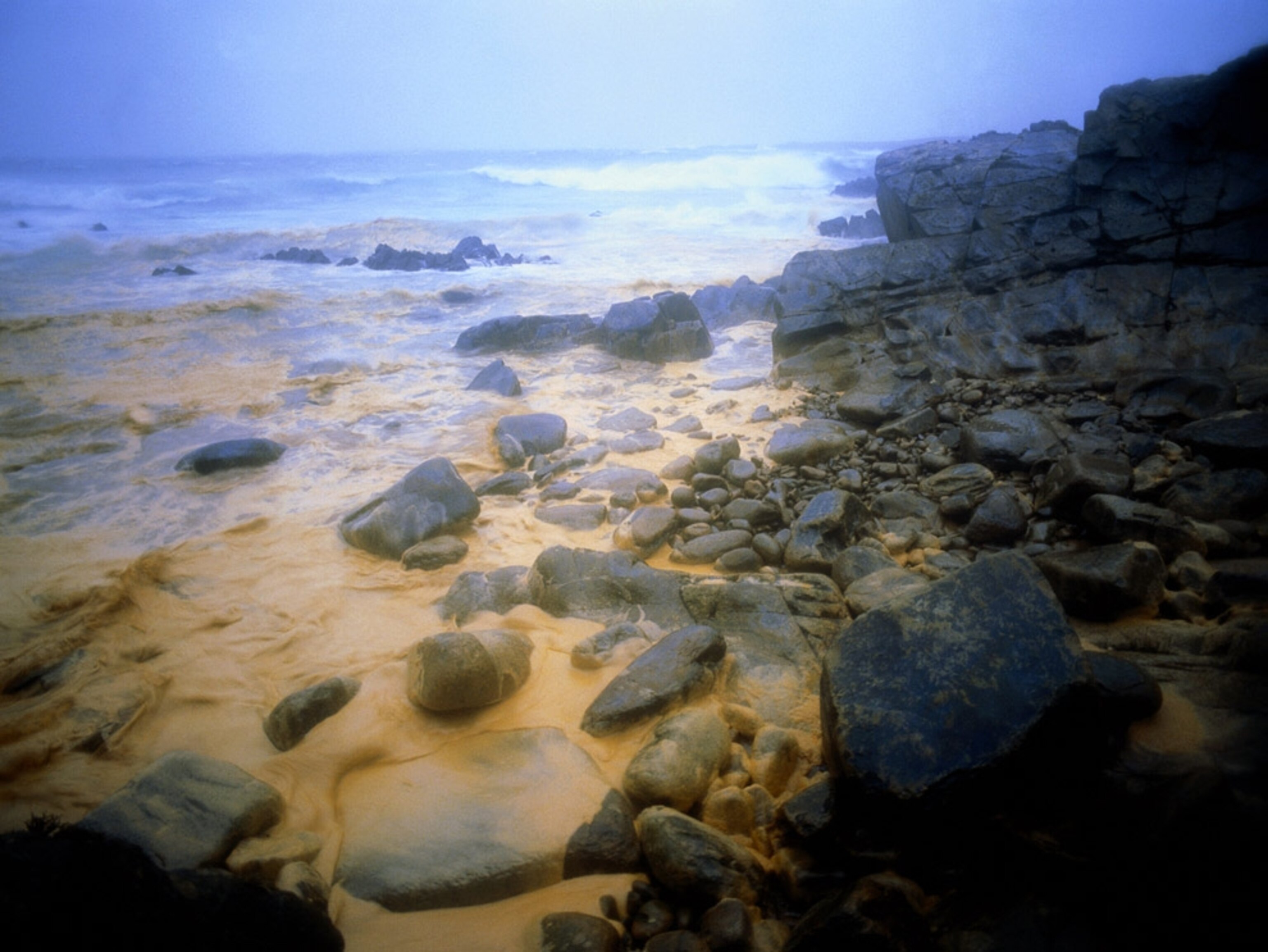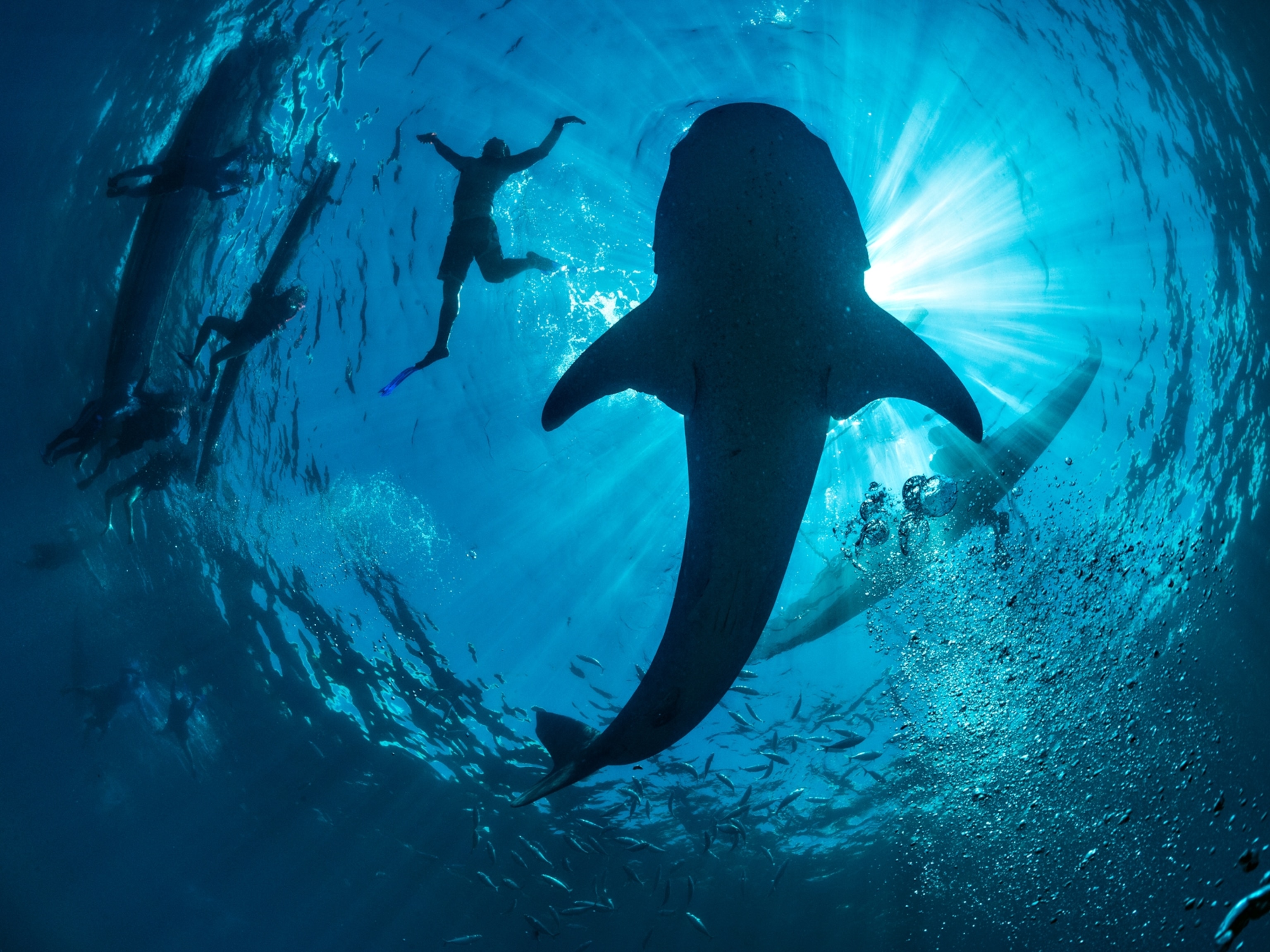
Ocean Threats
These types of human interference present the biggest threat to oceans.
Human activities are threatening the health of the world's oceans. More than 80 percent of marine pollution comes from land-based activities. From coral bleaching to sea level rise, entire marine ecosystems are rapidly changing.
Global warming is causing alterations in ocean chemistry and many oceanic processes, and it is threatening many species of marine animals that cannot cope with higher temperatures. Overfishing is a serious problem in many parts of the world. Conservationists advocate creating expansive marine reserves to protect the biodiversity of the oceans.
Threats
- Global warming is causing sea levels to rise, threatening coastal population centers.
- Many pesticides and nutrients used in agriculture end up in the coastal waters, resulting in oxygen depletion that kills marine plants and shellfish.
- Factories and industrial plants discharge sewage and other runoff into the oceans.
- Oil spills pollute the oceans, though U.S. water-sewage treatment plants discharge twice as much oil each year as tanker spills.
- Air pollution is responsible for almost one-third of the toxic contaminants and nutrients that enter coastal areas and oceans.
- Invasive species such as poisonous algae, cholera, and countless plants and animals have entered harbor waters and disrupted the ecological balance.
- The United Nations Food and Agriculture Organization estimates that 31.4 percent of fish stocks are either fished to capacity or overfished.
Solutions
- Establish marine parks to protect biodiversity.
- Reduce destructive fishing practices such as trawling.
- Minimize the use of military sonar that can harm or kill whales and other marine mammals.
- Help fishers to maintain their livelihoods by incorporating conservation efforts.
- Install measures to reduce the amount of fish caught accidentally.
You May Also Like
Go Further
Animals
- Orangutan seen using plants to heal wound for first timeOrangutan seen using plants to heal wound for first time
- What La Palma's 'lava tubes' tell us about life on other planetsWhat La Palma's 'lava tubes' tell us about life on other planets
- This fungus turns cicadas into zombies who procreate—then dieThis fungus turns cicadas into zombies who procreate—then die
- How can we protect grizzlies from their biggest threat—trains?How can we protect grizzlies from their biggest threat—trains?
- This ‘saber-toothed’ salmon wasn’t quite what we thoughtThis ‘saber-toothed’ salmon wasn’t quite what we thought
Environment
- What La Palma's 'lava tubes' tell us about life on other planetsWhat La Palma's 'lava tubes' tell us about life on other planets
- How fungi form ‘fairy rings’ and inspire superstitionsHow fungi form ‘fairy rings’ and inspire superstitions
- Your favorite foods may not taste the same in the future. Here's why.Your favorite foods may not taste the same in the future. Here's why.
- Are the Great Lakes the key to solving America’s emissions conundrum?Are the Great Lakes the key to solving America’s emissions conundrum?
- The world’s historic sites face climate change. Can Petra lead the way?The world’s historic sites face climate change. Can Petra lead the way?
History & Culture
- Meet the ruthless king who unified the Kingdom of Hawai'iMeet the ruthless king who unified the Kingdom of Hawai'i
- Hawaii's Lei Day is about so much more than flowersHawaii's Lei Day is about so much more than flowers
- When treasure hunters find artifacts, who gets to keep them?When treasure hunters find artifacts, who gets to keep them?
- Meet the original members of the tortured poets departmentMeet the original members of the tortured poets department
Science
- Why ovaries are so crucial to women’s health and longevityWhy ovaries are so crucial to women’s health and longevity
- Orangutan seen using plants to heal wound for first timeOrangutan seen using plants to heal wound for first time
- Should you be concerned about bird flu in your milk?Should you be concerned about bird flu in your milk?
Travel
- On this Croatian peninsula, traditions are securing locals' futuresOn this Croatian peninsula, traditions are securing locals' futures
- Are Italy's 'problem bears' a danger to travellers?Are Italy's 'problem bears' a danger to travellers?
- How to navigate Nantes’ arts and culture scene
- Paid Content
How to navigate Nantes’ arts and culture scene




